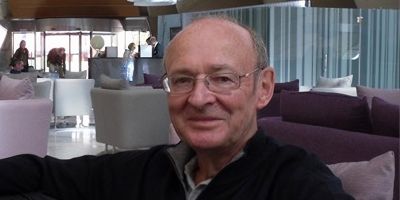Energy at Leeds: People Power
Head of Sustainable Energy and Climate Change at Leeds City Council, Tom Knowland, has a long term vision: to make the city of Leeds a real world test bed for the University’s energy research.
Tom is currently seconded part-time to the University, enabling him to make the direct connections which will help to turn this vision into reality.
“Although there is a long-standing relationship between the two institutions, it makes a real difference to have a regular, physical presence at the University,” says Tom. “I’ve been made really welcome, been invited to meetings and found out about research that I had no idea was taking place." Although the secondment only began in September, it’s already yielding results. With the support of Leeds researchers, Tom has been able to get some short-term research projects off the ground, involving Undergraduate, Masters and PhD students.
One project has used a model, developed at the University by Professor Alison Tomlin, to identify the top 20 council buildings where solar photovoltaics (PV) would be viable. Following economic and technical feasibility studies carried out by the Council, four of the buildings identified will have solar PVs fitted later this year.
“This project is a great example of how this kind of research is of mutual benefit,” explains Tom. “The University was able to refine its model by applying it to a real-world situation and we were able to see which of our many schools, leisure centres and other buildings were worth further consideration for this initiative.”
Another project examines the air quality impact of replacing electric storage heating in high rise flats with a small-scale district heating scheme based on biomass. Although biomass is a cheaper, more efficient and more reliable source of heating, the Council needed to know whether pollution monitoring or control measures might need to be put in place.
Tom is also developing longer-term research projects with Energy Leeds researchers, including Professor of Energy Technology and Environment, Andy Heyes. Professor Heyes has long wanted to create the equivalent of a ‘Big Brother’ house, focusing on energy efficiency, but it’s thanks to the connection with the City Council that the project is now starting to take shape.
The ‘Living Energy Lab House’ concept is to create a completely instrumented house, where energy use and loss can be precisely tracked and recorded. This would be monitored for a year, before putting in place energy efficiency technologies and then monitoring for a further year to see their impact on the ground.
The City Council have agreed to provide one of their student properties to be the Living Energy Lab House and Professor Heyes is putting in a joint bid with Tom for funding to support the project, initially from the European Union.
“Although students don’t constitute an average household, they’re an interesting demographic to work with,” says Professor Heyes. “Today’s graduates will spend all their lives in a transition to a low carbon economy, and will be the people who have to ensure that the energy efficiency targets we set today are met in 30 years’ time. So they are exactly the people we need to engage with these technologies and these issues.”
For Leeds to become an urban laboratory for University research, Tom would like to see more of these kinds of projects, which put research into practice on the ground.
Tom wants to see more direct connections made between the Council and the University – secondments such as his and more opportunities for student research in the city.
With tangible financial and intellectual benefits for both parties, the arrangement has all the elements in place for a successful long-term relationship.
Visit Energy Leeds for more information on our research.
Article and images from IMPACT research magazine.




